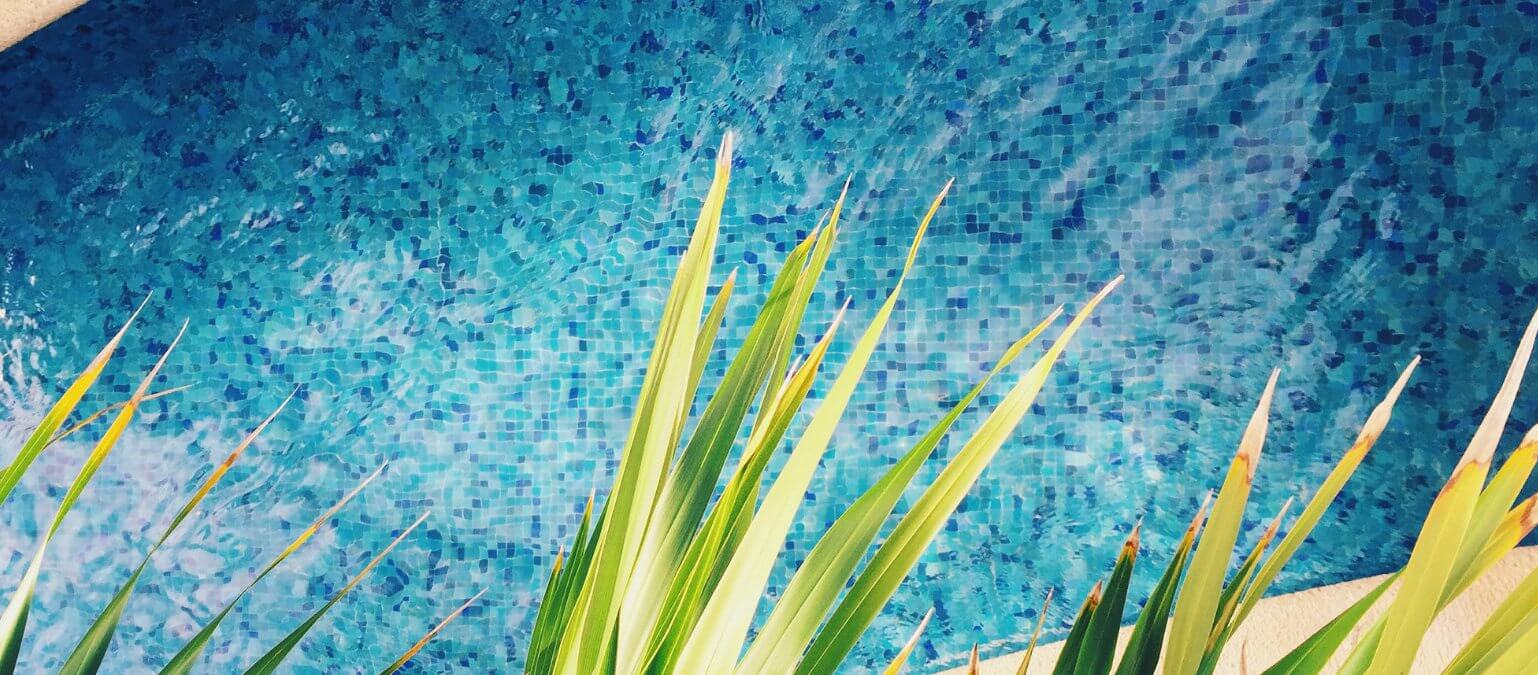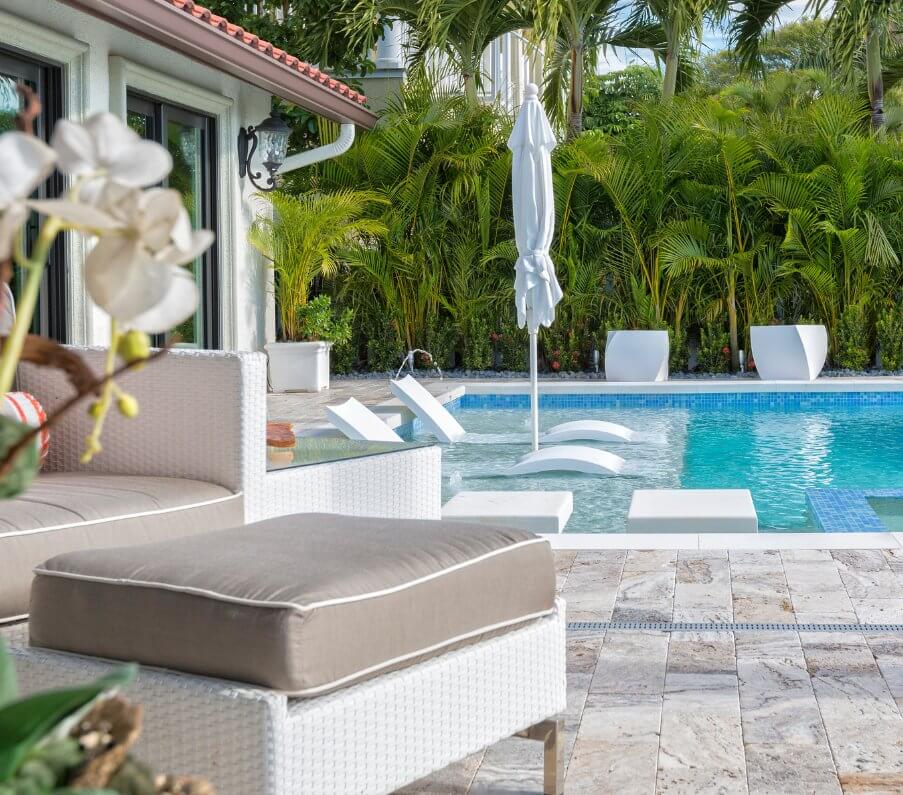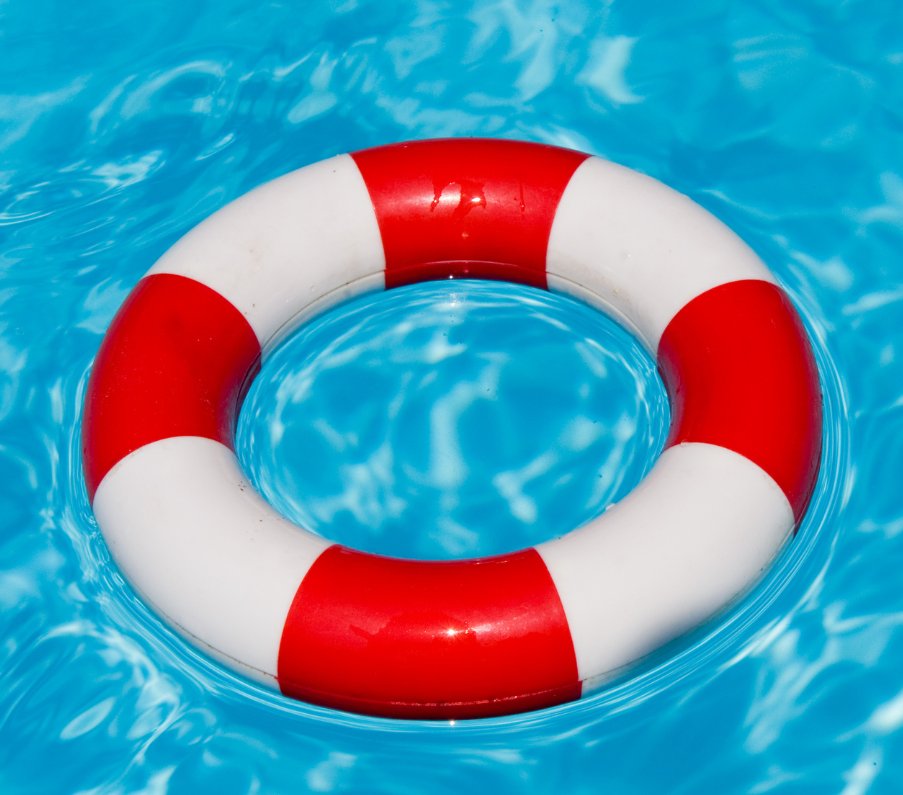How Salt Water Affects Your Pool: Tips for Outer Banks Pool Owners
Salt water pools are a popular choice for many homeowners in the Outer Banks, offering a more natural swimming experience and gentler water quality compared to traditional chlorine pools.

Salt water pools are a popular choice for many homeowners in the Outer Banks, offering a more natural swimming experience and gentler water quality compared to traditional chlorine pools. But living in a coastal environment introduces unique challenges—and understanding how salt water affects your pool is essential for proper care and long-term durability. In this guide, we’ll explore the science behind salt water pool systems, common issues caused by the salty environment, and smart salt water pool maintenance strategies specifically tailored for Outer Banks residents.
Understanding Salt Water Pools
Unlike traditional chlorine pools, salt water pools use a salt chlorine generator to convert salt into chlorine through a process called electrolysis. This creates a more stable and consistent level of chlorine in the water, resulting in fewer harsh chemicals, softer water, and less eye and skin irritation. It’s an attractive option for those seeking a more eco-friendly and low-maintenance pool experience.
That said, “low-maintenance” doesn’t mean “no maintenance.” Salt water systems still require regular attention—especially in the coastal Outer Banks region, where high humidity, salt air, and sandy conditions can complicate upkeep.
Salt Water and Pool Components: What You Need to Know
While salt water pools are generally considered less corrosive than many people believe, salt is still a chemical compound—and over time, it can take a toll on your pool’s materials and systems. Here’s how:
1. Corrosion Risks
Salt is mildly corrosive, and in the wrong conditions, it can degrade metal fixtures, pool ladders, lighting components, and pool equipment such as pumps and heaters. This is especially true in the Outer Banks, where constant exposure to sea air adds another layer of salt and moisture to your pool environment.
Tip: Choose corrosion-resistant materials such as marine-grade stainless steel or plastic fittings. Regularly rinse metal components with fresh water, especially after storms or heavy winds.
2. Salt Cell Maintenance
Your salt chlorine generator includes a salt cell, which is responsible for converting salt into chlorine. Over time, calcium and mineral buildup can reduce its efficiency and lead to expensive repairs or replacements.
Tip: Inspect your salt cell every 3–6 months and clean it with a mild acid solution or a manufacturer-recommended cleaner to prevent scaling and buildup.
3. Deck and Surface Wear
Salt can also damage surrounding areas like concrete decks, stonework, and coping. Splash-out water may leave salt residue behind, which can absorb moisture and cause pitting or surface discoloration.
Tip: Rinse off pool decks and nearby surfaces frequently, especially during the summer months when splash-out is more common. Seal concrete or stone with a salt-resistant sealant to extend their life.
Unique Challenges of Salt Water Pool Maintenance in the Outer Banks
The Outer Banks offers stunning scenery and oceanfront living—but the same salty air and breezy climate that make it so appealing also introduce pool maintenance concerns that inland homeowners don’t face.
1. Salt in the Air
Even if you’re diligent about maintaining your pool water, airborne salt from the ocean can settle on pool equipment and surfaces. This can cause oxidation, rust, and premature wear—especially on metal pool components and fencing.
Tip: Incorporate a routine of rinsing pool equipment and surrounding areas with fresh water weekly. Consider installing a pool equipment cover or shelter to minimize salt air exposure.
2. Humidity and Wind
High humidity and coastal winds accelerate evaporation and can concentrate salt levels in the water, especially during the summer months. This may throw off your pool’s salinity balance and impact chlorine production.
Tip: Test salt levels regularly using a salt water test kit and adjust as needed. Keep salinity within the manufacturer’s recommended range (typically 2,700–3,400 ppm).
3. Sand and Debris
Beach sand, organic debris, and leaves can quickly clog filters, skimmers, and drains. Sand can also abrade surfaces and contribute to staining or roughness in plaster or pool liners.
Tip: Vacuum your pool weekly and skim it daily during windy or stormy periods. A pool cover or screen enclosure can help minimize debris intrusion.
Essential Salt Water Pool Maintenance Tips
Maintaining a salt water pool in the Outer Banks requires a proactive approach. Here’s a quick checklist to keep your pool clean, safe, and running efficiently:
✅ Regular Testing
Check your pool water chemistry at least once a week. In addition to chlorine and pH, monitor salt, alkalinity, calcium hardness, and cyanuric acid levels. Balanced water chemistry is crucial for the effectiveness of your salt system and the longevity of your pool.
✅ Clean the Salt Cell
As mentioned earlier, inspect and clean the salt cell at least once every few months. Some salt systems have a self-cleaning feature, but manual cleaning may still be needed depending on your local water hardness and usage.
✅ Maintain Water Level
Outer Banks weather can cause rapid evaporation, especially in hot or windy conditions. Low water levels can impair circulation and reduce the effectiveness of your salt chlorine generator.
✅ Protect Against Storms
Severe storms and hurricanes are a reality for Outer Banks residents. Before a storm, turn off electrical systems, secure pool covers, and remove any loose items. Afterward, test and rebalance your water chemistry and check for debris and contamination.
✅ Professional Inspections
Consider scheduling a professional pool inspection at the beginning and end of the swim season. A local pool maintenance company familiar with Outer Banks conditions can identify and address potential issues before they become costly problems.
Long-Term Benefits of Salt Water Pool Maintenance
By staying on top of salt water pool maintenance, Outer Banks homeowners can enjoy a host of long-term benefits:
- Lower Chemical Costs: Once the salt system is up and running, it generates chlorine continuously, reducing the need for frequent chemical purchases.
- Gentler on Skin and Eyes: Swimmers enjoy a more comfortable experience without the strong chlorine smell or irritation common in traditional pools.
- Environmentally Friendly: Salt water pools use fewer chemicals and have less environmental impact.
- Increased Property Value: A well-maintained salt water pool can boost the appeal and value of your Outer Banks home.
Final Thoughts
Salt water pools are a great option for Outer Banks homeowners, offering a more natural and luxurious swimming experience. However, the coastal environment requires a more attentive approach to maintenance. By understanding how salt water affects your pool—and following practical maintenance tips—you can extend the life of your pool, protect your investment, and enjoy sparkling, safe water all season long.
If you're ever unsure or want our expert help with salt water pool maintenance, contact Duck Pool & Spa who understands the specific challenges of Outer Banks living.




